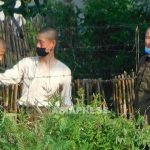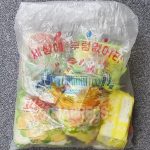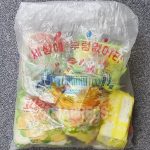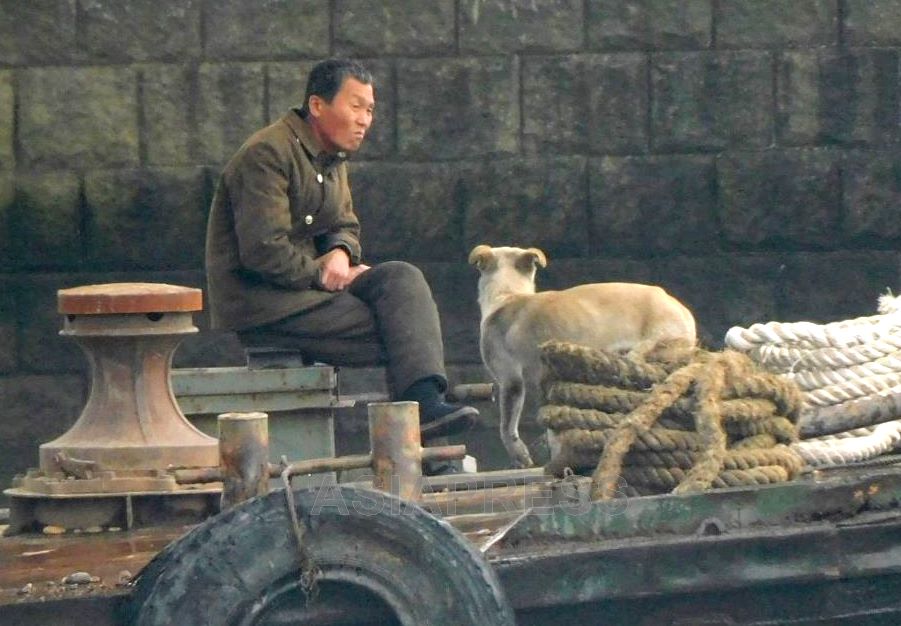
In North Korea's rural cities, disparities in food rations provided by different companies are growing. In January, some company workers received no rations at all, prompting employees to publicly criticize the incompetence of their managers. Meanwhile, the authorities are trying to prevent a growing number of workers from changing to jobs with managers who are better able to provide rations. (KANG Ji-won / JEON Sung-jun)
◆ Revival of an unstable rationing system
Since Kim Jong-un took power, North Korea has given factories and companies more discretion in their management activities, all part of efforts to push them to improve their own management and treat their employees better. This was seen as an attempt to supplement the rationing system, which had largely collapsed since the mid-1990s, but these efforts have not been very successful. Moreover, during this period, the rise of private economic activity, including at local markets, made the poor rations at companies an issue of little concern given that many people made their living in other ways.
While markets provided North Koreans with a way to earn money, the COVID-19 pandemic prompted North Korean authorities to begin a full-scale crackdown on almost all types of private economic activity, including market activities, from 2020 to 2021.
The authorities ordered companies to revive what had been a laxly controlled system of rationing in order to provide workers with as much food as possible. These efforts were aimed at forcing employees to show up for work. The amount of rations varies from company to company, but in the northern provinces of North Pyongan, Yanggang, and Hamgyong, workers are typically given five to seven days’ worth of food per month.
According to a February 13 report from an ASIAPRESS reporting partner in Yanggang Province, the rationing system has become even more important to people who have lost their main source of income due to the government’s strong crackdowns on private economic activities.
"They don't let us do business and we have to rely on rations and state-run grain shops. People are becoming more reliant on the rations, which they didn't care about before because women earned money."
State-run grain shops: The Kim Jong-un regime is selling food through these shops as part of efforts to crackdown on the illegal sale of white rice and corn in markets.
◆ Ration system reveals inequalities
The problem is that the economic situation in North Korea has deteriorated since the pandemic. As a result, many businesses are unable to provide rations, which has revealed the inequalities in North Korean society.
While some companies are able to self-manage their rations-related issues by earning money from side jobs outside of their main business, others are not. A reporting partner told ASIAPRESS:
"In Hyesan, a steel factory handed out rations for January, but nothing was given to workers at a shoe factory or beer factory. The steel factory specialized in transporting firewood (as a side business) and made money, so they (were able) to give some rations to the workers."
According to the reporting partner, the steel plant used the factory's labor force to transport firewood for heating, which was in high demand during the winter months. The money earned from this business was used to distribute rations to the workers.
"The factory managers say they have a hard time running the factory because workers are complaining openly about who gets rations and who doesn't, even though they work the same amount."
◆ Discontent rises, leading to explosions of anger at officials
The reporting partner said the issue became particularly acute among workers around February 16 (Kim Jong-il's birthday), a national holiday in North Korea, when holiday rations varied widely between companies. The situation prompted the party committee in Hyesan to take action.
The disparity in rations, which came at a crucial time of the year, led workers to complain to managers and hold them accountable, he said.
"On February 6, there was an ideological struggle meeting at a shoe factory against the unemployed and other illegal elements of society, and there was an incident where a worker criticized a workplace official for being incompetent about handing out rations."
Taken aback by the rare criticism, the official in question replied: "Could you do my job any better?" At that, the worker upped the ante by replying: "If you can't give out rations, what kind of a leader are you, and why should we listen to you?"
◆Workers attempting to somehow switch jobs
The reporting partner said that there is a growing trend among workers to take second jobs in factories run by "competent" managers who give them rations.
"They will apply for a leave of absence with excuses such as illness, difficulty making a living, or tuberculosis infections. Then, after three months, they will apply for a new job and try to move to the factory (through bribes)."
As the number of such cases has increased, the labor department of the people's committee (local government) has been taking notice. Local officials have instructed people who have moved jobs to go back to their original jobs; however, telling people what to do is challenging because some have gone to extreme measures of changing their residence in order to switch jobs.
It seems unlikely that Kim Jong-un's regime, which has used the pandemic as an opportunity to continue its policy of tightening state control and management, will change course now. However, the seeds of inequality in North Korea's society are not going to go unnoticed, which means that developments going forward must be closely watched.
※ ASIAPRESS communicates with reporting partners through Chinese cell phones smuggled into North Korea.
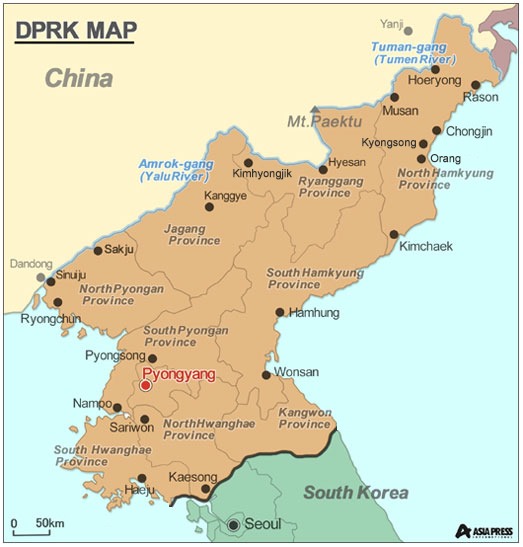
- <Inside N. Korea> Surveillance cameras are popping up in markets, restaurants, roadsides... "They are used to identify those responsible for increased crime and disturbances"
- <Inside N. Korea> Fights and even robberies: The authorities troubled by groups of ex-soldiers…Soldiers are placed in construction teams to reintegrate into society… However, men who serve for 8 years miss out on their youth
- <Inside N. Korea> Preparation for construction mobilizations for Kim Jong-un’s “20x10 policy” are complete, but there’s already unrest and complaints among workers over supplies of food
- <Inside N. Korea> Wigs, fake eyelashes emerge as a driver of exports abroad, but laborers work in very poor conditions
- <Inside N. Korea> Kim Jong-il birthday festivities smaller than in the past…special rations reduced due to lack of funds…focus more on labor mobilizations, with some events canceled



